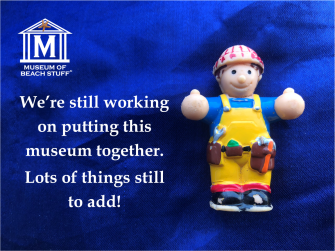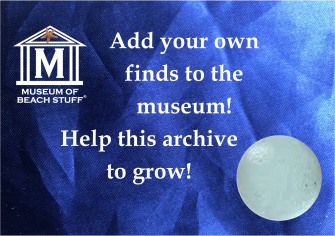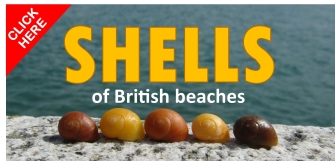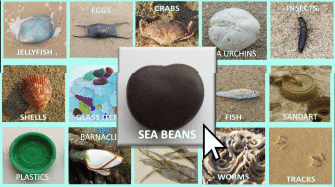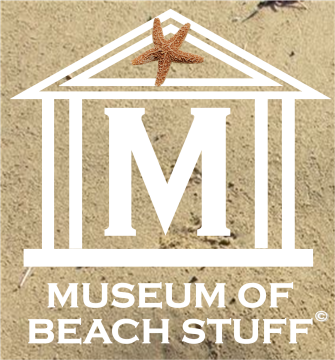

Museum floor plan
| Vintage Plastics Gallery |
Pottery and glass Gallery |
|
gallery closed for development |
|
|
gallery closed for development |
Submissions |
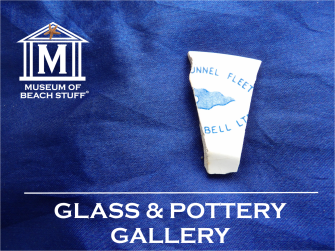
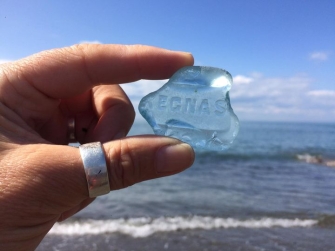
Regnas bottle fragment. c.early 1900s
Regnas was a London company which made glass bottles including those for medicines and infant feeding bottles and pottery items such as bed pans and feeding cups. Rectangular-based bottles, such as this might have been, with REGNAS written on the base were typical items.
Found: Ilfracombe, North Devon 2023


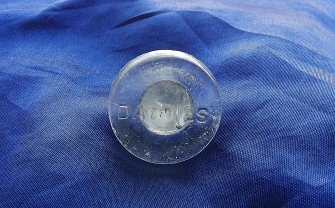
Daddies sauce bottle glass stopper c. early 1900s
Not just a glass stopper, but one with a trade name embossed onto it! I have to admit that I had no idea how long Daddies' Sauce had been around for but apparently we've been eating it since 1904 when it was invented in Nottingham.
Found: August 2025

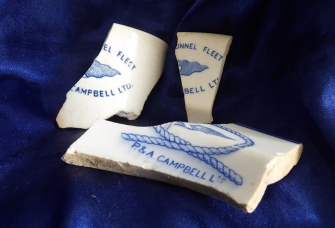
P&A Campbell pottery fragments 1893 - 1968
These fragments of crockery emblazoned with a range of P&A Campbell logos were found in Ilfracombe Harbour. The Campbell paddle steamers were regular visitors to Ilfracombe, picking up and dropping off up to a thousand day-trip passengers. The last two paddle steamers ended in 1967 and 1968 - the PS Bristol Queen and PS Cardiff Queen.
Found: Ilfracombe Harbour. 2019-2022
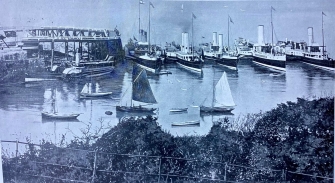
Five P&A Campbell paddle steamers dock in Ilfracombe Harbour in the early 1900s. Unknown source.

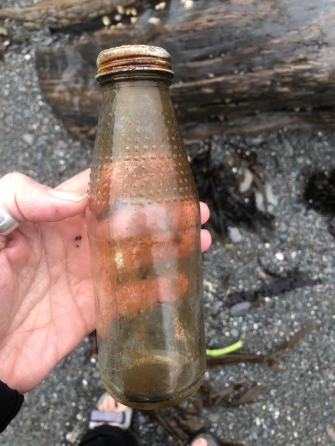
Lucozade bottle c. 1990s
The gold screw cap and the dimpled glass suggest this was a Lucozade bottle in the days when it was making the transition from being a drink for ill people to one for sporty people.
Found: Ilfracombe, North Devon 2024

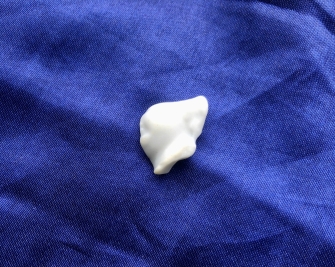
China doll. Unknown date
The Victorians popularised dolls with cloth bodies and heads, legs and arms made of china. This fragment is the just the cheek, mouth and ear of a cherubic child.
Found: Isles of Scilly. 2024

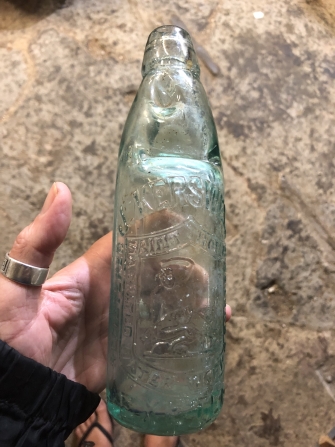
Codd-neck bottle c. early 1900s
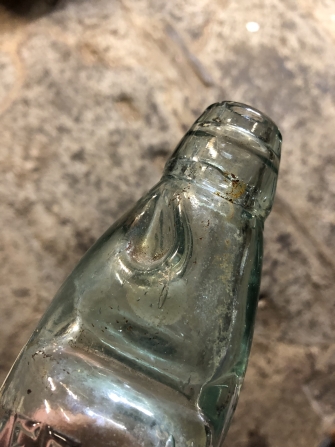
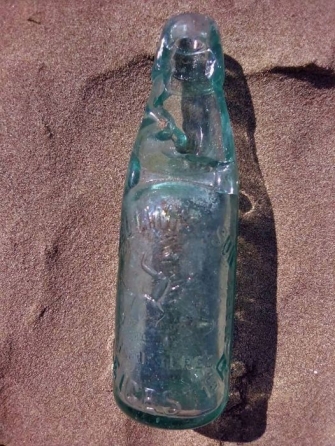
Codd bottle with the neck broken, perhaps a deliberate act to retrieve the marble.
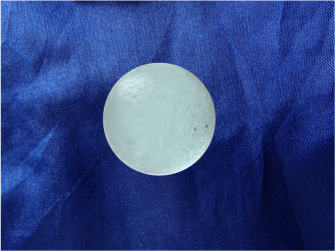
A codd bottle marble. The glass is generally cloudy but not marked with patterns or colours.
There is a theory that the word 'codswallop' derived from hitting the marbles into place in a Codd bottle. And another that 'wallop' was slang for beer so codswallop (or rather Coddswallop) was a Codds bottle of beer.

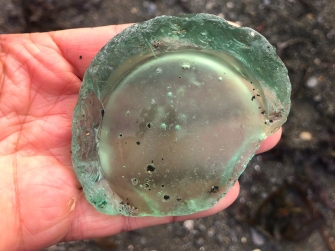

The base of a green glass bottle
This lovely chunky bit of glass has the letters P & R B on it (not BP & R as I initially thought!). These are significant letters as they pinpoint the glass to a place and a time. The B is for Bristol and the company is Powell and Ricketts. This appears to have been in operation from the late nineteenth century until 1923.
Found: North Devon, 2024

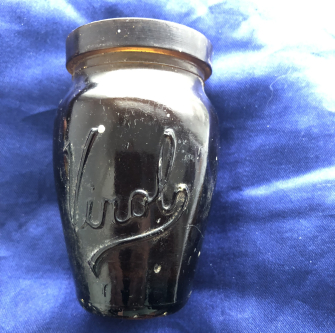
Virol jar c. 1950s?
Virol, originally produced by Bovril, was a supplement food for infants comprising such tempting ingredients as bone marrow and malt extract. It was produced between 1899 and the 1980s initially in crock pots and, from the 1920s in brown glass jars like this.
Found: North Devon, 2024

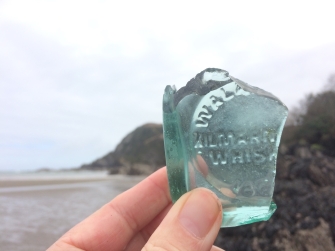
Whiskey bottle base 1860s
This square bottle base has 'Walkers Kilmarnock Whiskey 186?' embossed on it.
Found: North Devon 2021.

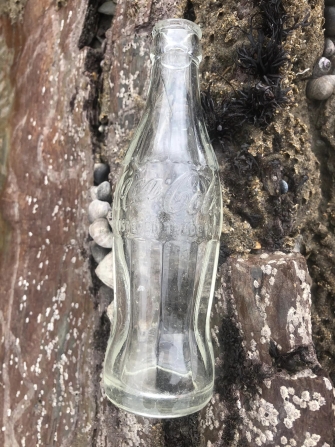
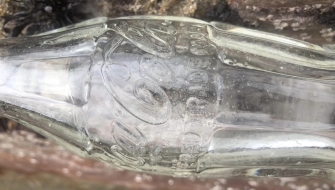
Coca Cola bottle. c. early twentieh century
This bottle has the Coca Cola logo and the words 'REGISTERED TRADE MARK but nothing else suggesting that it may be an early version. Coca Cola's logo has been very similar since around 1893 so it is not easy to date branded items by the logo alone.
Found: Ilfracombe, North Devon 2024

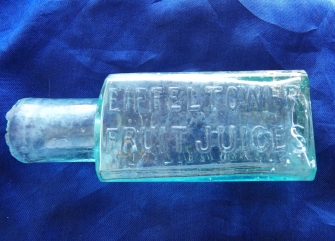
Eiffel Tower Fruit Juices c.1900s
Eiffel Tower Lemonade and Eiffel Tower Fruit Juices were made from 1891.
Found: North Devon 2025.


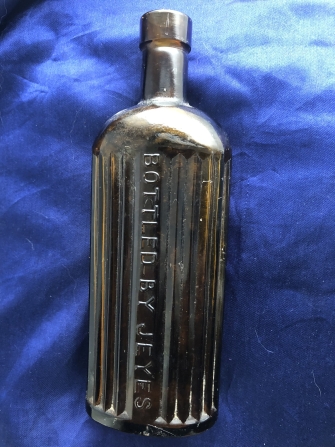
Jeyes
John Jeyes invented his disinfectant as long ago as 1877 at a time when the whole idea of soap and cleanliness was really in its infancy. John's Jeye's Fluid became popular, not only because it was the only disinfectant on the shelf in Tesco, but because it had medicinal uses. It was believed that regular warm baths in Jeyes greatly increased the survival rate of scarlet fever. Bottle sellers have dated this brown bottle with 'Bottled by Jeyes' on it to the early 1900s. It could be later as similar bottles were used right through until after the first World War. Jeyes Fluid is still a popular brand today.
Found: North Devon 2024.

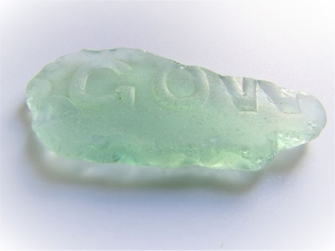
Paterson's Camp Coffee bottle. c early 1900s
This fragment has GOW on it which suggests it is from a Camp Coffee bottle as they, being made in Glasgow, had GLASGOW written down one side. R. Paterson & Son in Glasgow operated from1851 to 1927. The company started making camp coffee in 1876.
Found: Ilfracombe, North Devon. c. 2020.

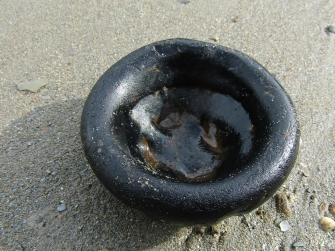
Early bottles. 1700s - 1800s
Early glass bottles were thick and dark with very domed bases. The dark glass, which is often green when a light shines through it, is known as pirate glass presumably because it was believed that sailors and pirates drank rum out of them.
Found: various

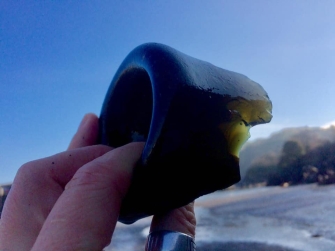
The domed base of an early bottle which apears black but shows green with sunlight shining through it.

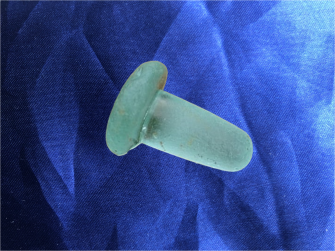
Glass bottle stopper
Glass stoppers were an early way of sealing in the contents of glass bottles. Without a screw thread, the seal was not perfect.
Found: Ruth Dayer

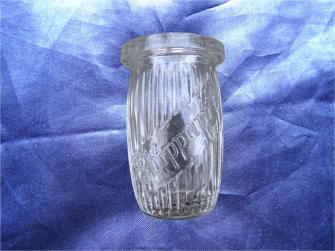
Shippams paste jar. c 1970s ?
The Shippam company first produced meat products in Colchester in the mid eighteenth century. Their small jars of meat or fish pastes became very popular and the old jars show up now and again in the dunes where perhaps they were left after picnics.
Found: North Devon. 2015


Bovril jar. Early 1900s
Sadly recently broken.
Found: Saltash 2025

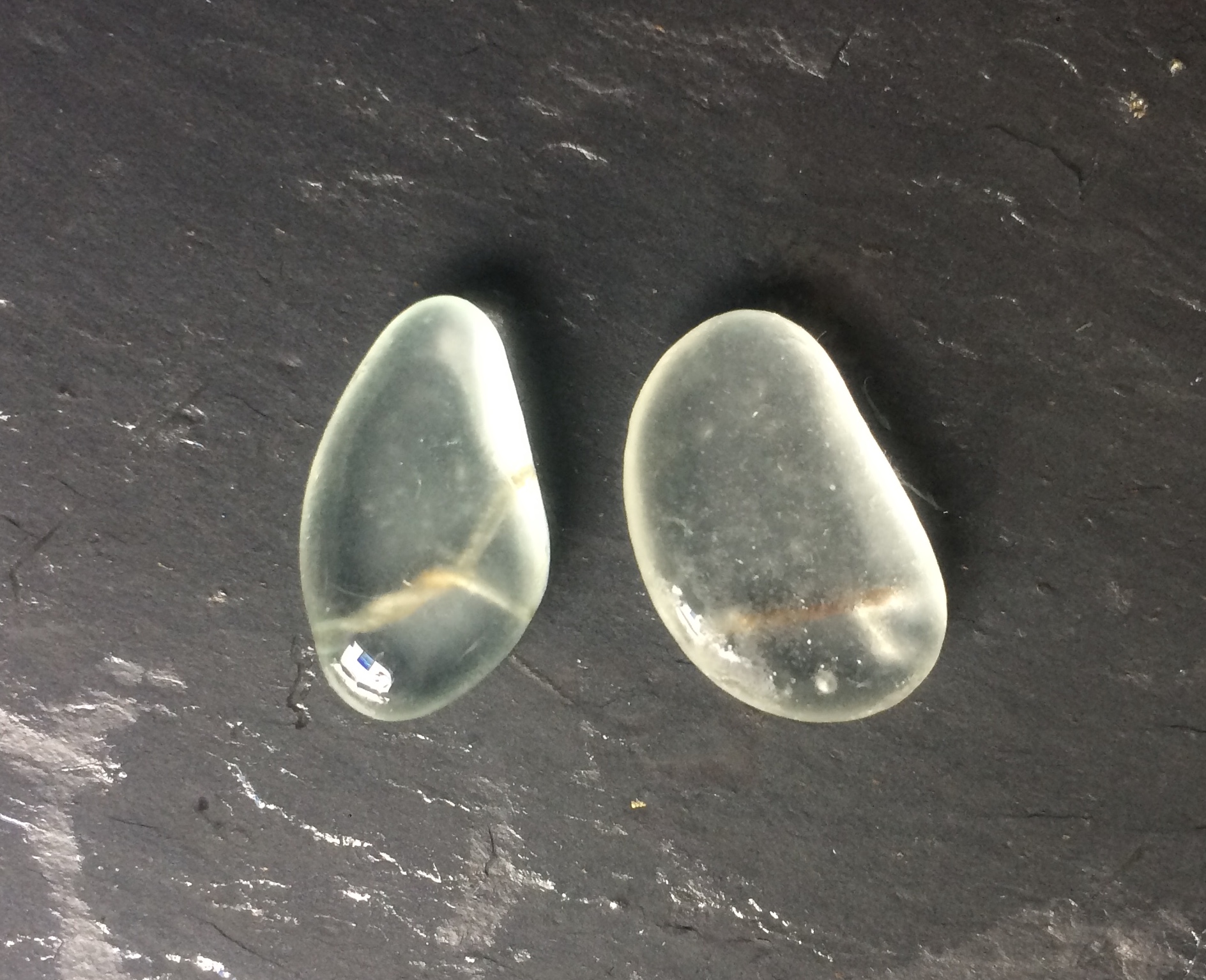
Safety glass / Wired glass c 1970s
Glass with wire in it to give it extra strength was invented in 1892 and was used in many schools in the 1950s and 1960s largely because it was cheap and safe. It is now out of favour as it is no longer thought to be all that safe.
Found: various
